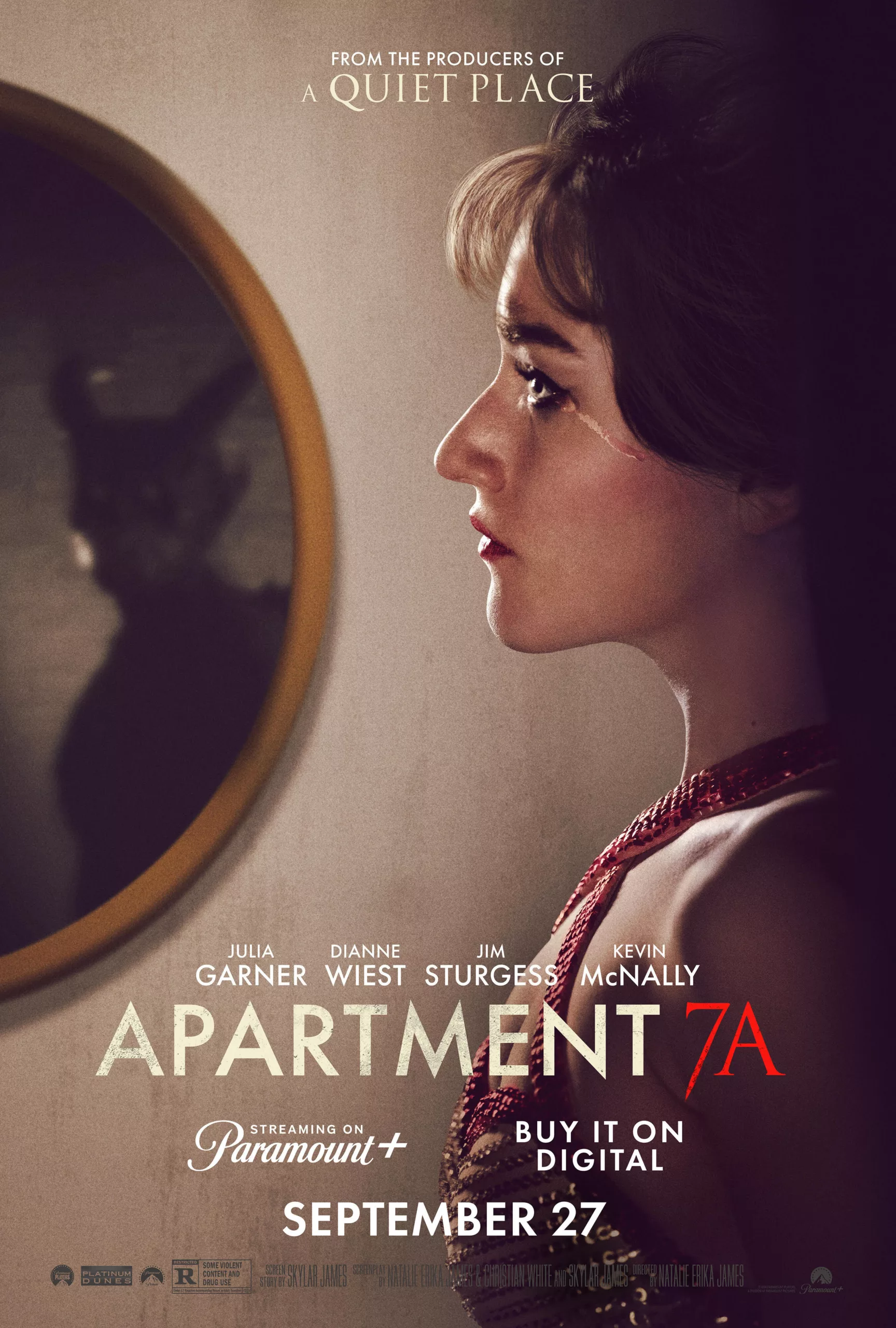

Hollywood not having any new ideas is a common refrain in the circles of popular discourse, be it on Facebook or Twitter (or X, whatever). I usually disagree, if only because it’s often just some bullshit excuse to grandstand and present oneself as an elite “true” fan of the genre. But Apartment 7A, the Natalie Erika James helmed prequel to Rosemary’s Baby, is one of those films that unfortunately seems to justify that accusation against the film industry.

Apartment 7A is the story of Terry Gionoffrio, a struggling dancer in New York City in the ‘60s. Hailing from a small town in Nebraska, Terry is convinced she is just about to have her big break, and she’s desperate for that break. Unfortunately, the only break she gets is an injury and she’s soon destitute and dealing with a burgeoning addiction. But then, she meets a kindly old couple who have an extra room at a fancy apartment building in Manhattan, and before she knows it, she’s under their wing and feeling much better and getting all the work she needs and…well…you know the rest.

This is a movie that seems to struggle to find its place next to what is objectively one of the greatest films of any genre. It’s not a bad film by any stretch. The performances are compelling, it looks great, and it’s successful at creating a believable atmosphere of dread. Julia Garner as Terry Gionoffrio shoulders much of the weight when it comes to telling a compelling story. Her Terry is endearing and sweet and sympathetic, a hapless soul in the crosshairs of some cosmic game of chess she can barely comprehend. Garner’s performance does much to highlight the insidious nature of the plot at the heart of these films, and how the powers that cruelly target someone at their most vulnerable.

Unfortunately, that performance is at the heart of a film that feels wholly unnecessary. It’s not that the film does postulate an interesting question about the character of Terry from the original film, or that that character isn’t worthy of some kind of backstory. Apartment 7A feels more like the answer to a question that nobody asked. The (wrongly) maligned (and identically named) prequel to John Carpenter’s The Thing suffers from similar accusations, but at least in Carpenter’s film the question of what happened to the Norwegians arises; indeed, Richard Dysart literally asks Kurt Russell what the hell happened there. So, at least with that film there is a compelling question in need of an answer. In Rosemary’s Baby, however, part of what makes the story so sinister is the nature of Terry’s death; she’s a struggling addict who seemingly inexplicably dies by suicide. By giving it some kind of backstory it robs the moment of its power. It’s not a central moment in the film, merely an accent in the rhythm of the story. Giving that moment further emotional weight doesn’t really bring much to the original story. Furthermore, this film is almost beat for beat the story ofRosemary’s Baby once all the initial characters are introduced. It does a decent job at bringing its own take on the psychedelic nature of the blackout sequences, but again: it’s simply seeking to recreate something from the original.
Apartment 7A is not a bad film. If you want something to watch this Halloween, it’s got enough of a spooky atmosphere to satisfy any open-minded horror fan. And I cannot stress enough that on its own this movie is fine. Unfortunately, by shoehorning itself into the mythos of Rosemary’s Baby it limits itself from the gate and struggles within the confines of those limits. It’s not fair to hold this movie up to the standard of the original, and if you do that, you’ll definitely be disappointed, but by its very existence it will call to mind the original and that will absolutely weigh it down.




